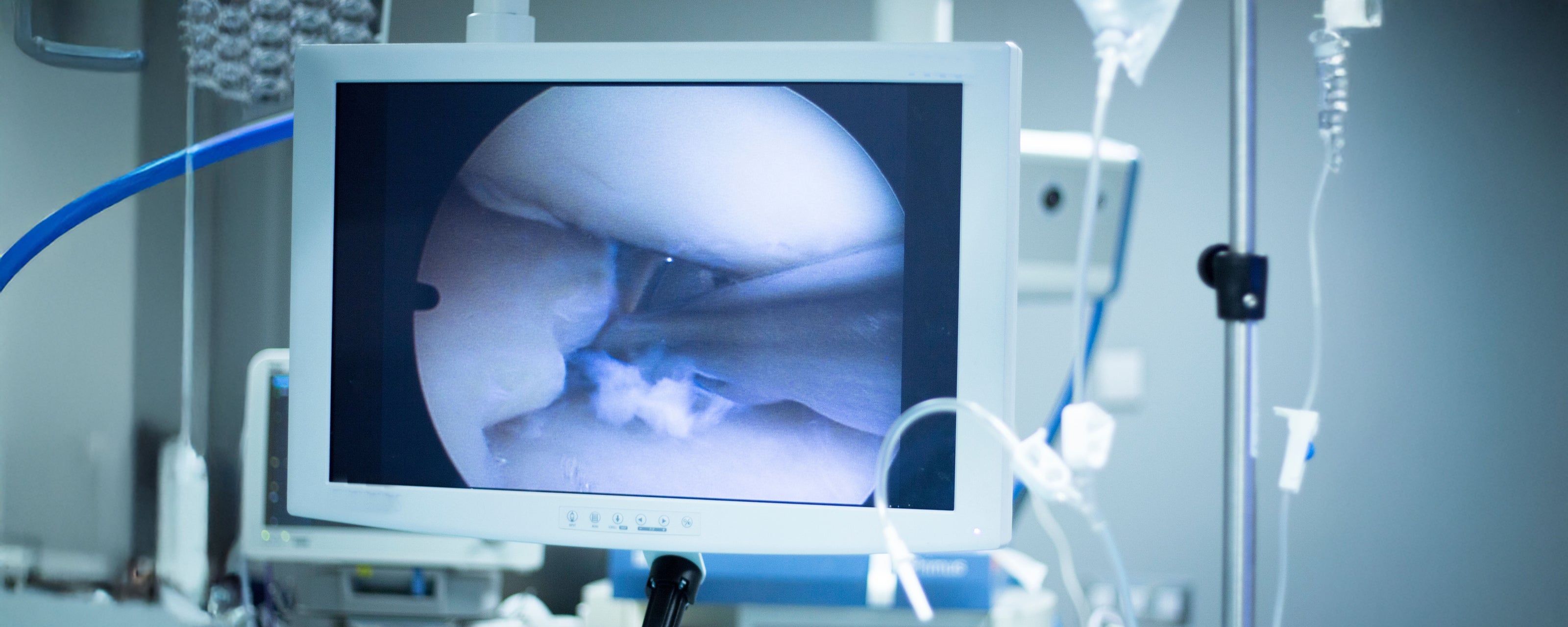
Meniscal Tears
A meniscus tear is a common type of damage to cartilage in the knee.

-
Treatment Options for Meniscal Tears
Treatment depends on several factors, including the type and severity of the tear, your level of physical activity, and whether you are experiencing mechanical symptoms (like locking or instability).
-
Non-Surgical Treatment
Not all meniscal tears require surgery.
Minor tears, particularly those located on the outer edge of the meniscus where blood supply is better, can often heal with rest, physiotherapy, and anti-inflammatory medication.
In some cases, injections such as platelet-rich plasma (PRP) or hyaluronic acid may be offered to reduce inflammation and support recovery.A personalised rehabilitation programme can help strengthen the muscles around the knee and restore full function, particularly in less active individuals or those without mechanical symptoms.
-
Surgical Treatment: When Is It Needed?
If symptoms are persistent, the tear is large or unstable, or if you’re an athlete aiming for a quicker return to sport, arthroscopic surgery may be recommended.
Arthroscopy is a minimally invasive procedure that uses a small camera and specialised instruments inserted through tiny incisions in the knee. This technique allows for:- Precise visualisation and treatment of the tear
- Less soft tissue trauma compared to open surgery
- Faster recovery times with minimal scarring
- A lower risk of complications
Depending on the nature of the tear, your surgeon may either:- Repair the tear using sutures or anchors, which helps to preserve the meniscus but requires a longer recovery time
- Remove the damaged portion (partial meniscectomy), which often allows for quicker rehabilitation
Many patients go home the same day, and rehabilitation begins shortly after surgery. -
Rehabilitation and Recovery
Rehabilitation is essential to restore knee strength, flexibility, and control—particularly if you're returning to sport or physically demanding work.
After a partial meniscectomy, patients often resume normal activity within 2 to 4 weeks.
After a meniscal repair, recovery is longer—typically 3 to 6 months—as the repair must be protected during the healing process. A knee brace and activity modification may be required during early recovery.
A tailored physiotherapy programme will guide your return to full function safely and efficiently.
A Personalised Approach to Treatment
As a knee specialist, I will assess the type of tear, your lifestyle, and your goals to recommend the best treatment option—whether non-surgical care or arthroscopic surgery. The aim is to relieve your symptoms, protect your knee for the future, and support a full return to activity.
